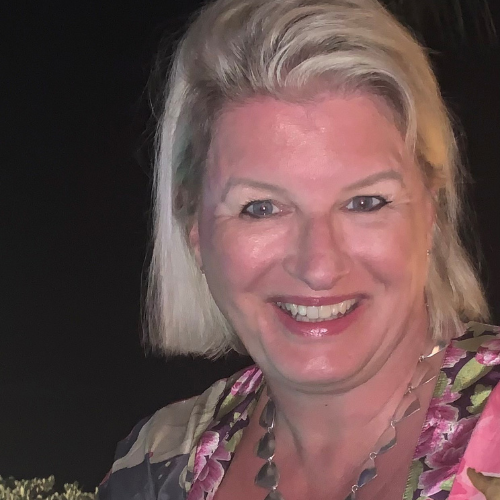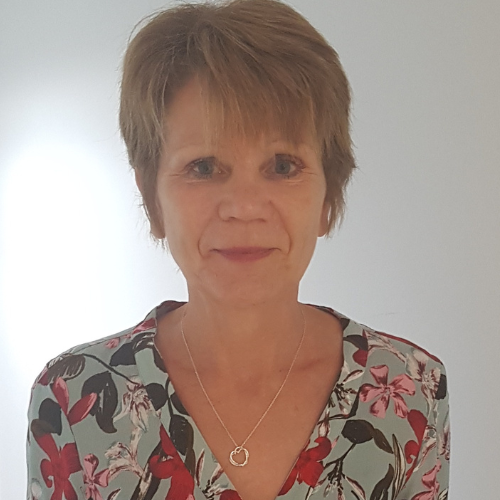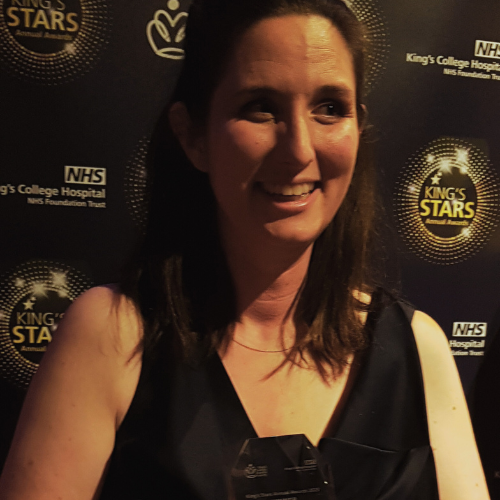December News
As we head into December, we’re pleased to share with you news and updates from November. It’s been a busy month, as you will see. We introduce Lisa and Wendy, two members of the team who are both nurses. There is a focus on home therapies and, more specifically, peritoneal dialysis, and we have an information-packed section on QI to help you get started on your quality improvement plans.
All of us at LKN would like to wish you a peaceful and restful holiday period, and we hope that those of you who are working still have a chance to be with friends and family. See you in 2024!
We hope you enjoy reading our newsletter, and look forward to sharing more with you in January 2024.
Focus on…Dialysis at Home, Peritoneal Dialysis
There is good evidence that across London we do not support as many people as would like to dialyse at home, if given the support and opportunity to do so. Both peritoneal dialysis (PD) and home haemodialysis (HHD) are great treatments that avoid the need for hospital (in-centre) based haemodialysis. The LKN is working to ensure that everyone in London has equal access to high quality dialysis at home.
One of the challenges in some areas of London are access to peritoneal dialysis catheters, work on training healthcare teams in inserting percutaneous PD catheters is being led by Bhrigu Sood, to ensure that every unit has rapid access to PD catheters to help people start dialysis at home with the right dialysis access. As a network we are also working closely with manufacturers to ensure that there is a resilient supply chain for PD catheters over the next few years.
Katie Durman has developed with a Home Dialysis nurses from across London guidelines on Training for PD along with Nursing Workforce. Ensuring an appropriately skilled and resilient workforce are vital to support the growth of Home Dialysis programs across London. This work will extend to Home Haemodialysis as well as looking at variations in dietetic support across London in the next few months.
As healthcare teams we all want to ensure that our quality of care is good as it can be and we know that infection is one aspect that many people worry about with home dialysis. Peritonitis (abdominal infection relating to peritoneal dialysis) rates across London are now a central part of the LKN datapack, demonstrating that while in general we provide safe care, we need to work as a network to ensure we continue to do so as more people choose home dialysis treatments.
Finally, while currently most people doing dialysis at home do PD, Home Haemodialysis programs are growing. Bringing teams together around HHD, led by Suzanne Forbes, is starting to help share expertise to support continued growth and high-quality care in this area.
Meet the Team
In the October Newsletter, we introduced a ‘Meet the Team’ section. We met Lisa and Wendy, two AHPs who work with the LKN. This month, we chatted with Wendy and Lisa to hear why they love being nurses and why working with the LKN is important to them.

Lisa Silas
Advanced Nurse Practitioner-Living Kidney Donation, ABO and Recipient Workup at GSTT, and LKN Transplant Workstream co-Chair
What do you love about being a Nurse? Being part of the life-changing journey for kidney transplant recipients and witnessing the profound positive impact it has on people’s lives is truly rewarding. This is what gets me up in the morning.
What skills do being a Nurse give you that allow you to fulfil your role in the LKN? My experience in the renal transplant field undoubtedly brings valuable insights and expertise which enable me to collaborate with colleagues across London. The confidence I have gained over the years allows me to share ideas effectively and contribute to a multidisciplinary approach. In the complex world of healthcare, where various specialties work together, excellent communication is a key factor in ensuring a coordinated and comprehensive approach.
What do you love about working with the LKN? Bringing together professionals from the multidisciplinary team to share ideas, learn, and support one another is a powerful way to enhance the overall effectiveness of healthcare initiatives. The exchange of ideas and shared experiences will hopefully lead to continuous improvement and advancements in transplant care and will foster a sense of unity and common purpose among the London Transplant centres. I especially enjoy working with patient focus groups. Engaging with patients directly can bring valuable perspectives and insights to healthcare practices. Patient focus groups offer a unique opportunity for healthcare professionals to better understand the experiences, preferences, and needs of those they serve.
What’s your advice to other Nurses considering taking on a non-traditional role? Definitely consider it. Transitioning to a non-traditional role may seem daunting, but successfully navigating challenges can lead to personal and professional growth and can open doors to new opportunities and advancement within your career. Exposure to new people, ideas, and approaches broadens your horizons. It helps you see your work from different perspectives, making you more adaptable and open-minded and breaks the monotony of a routine day to day job.

Wendy Brown
LKN Multi-disciplinary Team Member and interim lead for Patient Partnership and Engagement
What do you love about being a Nurse? As a nurse, working directly with kidney patients, I am fortunate to be in a position to help make a difference to their lives as they adjust to living with a chronic health condition. I particularly appreciate the opportunity to help patients feel empowered through information and knowledge so they have the skills and support to self-manage their own health and treatments where possible.
What skills do being a Nurse give you that allow you to fulfil your role in the LKN?
Good communication skills to enable links between healthcare providers and patients to establish joint working, develop engagement and improve long term patient experience. Ability to build a rapport and trust with others; colleagues, patients and community partners.
What do you love about working with the LKN?
The opportunity to work and collaborate with colleagues and patients across London, sharing good practice with the aim of improving care and reducing inequities for patients. A collective voice and action is so much stronger than a silo effort.
What’s your advice to other Nurses considering taking on a non-traditional role?
It is an excellent opportunity to work and experience renal care outside your own setting. Also to work with brilliant colleagues across London who are all working towards the same goal – providing better to care for kidney patients in London
An Introduction to QI
You may have completed an audit and identified an area of your service or practice that you wish to improve, but when and how do you start?
Step 1. Get some training and help
Contact your local QI team, ask about training in the principles of QI, ask if your organisation provides ‘QI coaches’. A coach is someone who has expertise in QI methodology and can help and guide you with your project.
Step 2. Who’s on the team?
Think about the key individuals that need to be engaged with the project to achieve a successful outcome. Also consider who might have particular insights or different perspective on the problem you want to tackle. Your team should have around 5 members. You will need a team leader, someone who will take overall responsibility for driving the project. You also need a sponsor. The sponsor is usually someone in a senior leadership position who can help overcome barriers and whom you can turn to for support if needed. It is not necessary for the sponsor to be part of the core improvement team, but they should check in on a regular basis and try to understand how they can help.
Step 3. Set an aim
In the model for improvement, the first task for your improvement team is to write
an aim statement – “What is it we want to accomplish?”. The aim statement communicates clearly to the whole team what you want to achieve. This is an exercise in goal setting. Decide what you want to achieve, how much you want to improve and by when. The key to setting and writing a good aim statement is to be SMART!
We will work through an example.
We want to increase the number of people receiving a kidney transplant.
S – you want to be specific. What is it that you are going to improve? Define the population that your improvement applies to.
With reference to our example, we decide to refine our aim to specifically increase the number of individuals receiving a pre emptive (before they need dialysis) kidney transplant. However, we also need to be more specific with regards to the scale of the improvement we are hoping to achieve so we revise our aim as follows:
Increase by 25% the number of individuals receiving a pre-emptive kidney
transplant
M – your aim should be measurable; how will you assess your progress and know
when you have achieved your aim otherwise?
A poor example would be “improve the happiness of the workforce”. How do you measure happiness?, “Improve staff job satisfaction as determined in the NHS Picker staff survey by 25%” would be a better way of outlining the aim.
You must have baseline data from which you will judge your improvement, often this will have been identified in the course of a clinical audit.
Another important consideration is how you will measure. The less work involved in obtaining the measurement, the more likely your project will remain on target and ultimately result in successful improvement.
Some outcomes have a lead time which you will need to consider. In our example increasing the number of pre-emptive kidney transplants is going to be determined by a number of factors not least how long individuals are on the waiting list. You may even include multiple goals within the overall aim of your improvement project.
So our aim now is:
Increase the number of individuals receiving a pre-emptive kidney transplant by 25% through:
Increasing the number of living donor transplants by 20%
Optimising the referral pathway to increase the proportion of patients
activated on the national transplant waiting list when their eGFR is 15 ml/min
Reducing the length of time taken to work-up for transplant listing from a
median of 200 days to 186 days or less
A – Achievable. It is important that your aim is realistic setting an unrealistic aim which you then do not achieve can be demoralising. For example setting the aim to achieve 100% compliance with a target may not be achievable. A good starting point is to consider a relative improvement e.g. 20-25% improvement from baseline Or achieve a particular goal for 95% of individuals.
R – Relevant, your aim should be relevant to you, your team and the organisation. It can be very difficult to achieve your aim if these are not aligned. Before embarking on your improvement project, you may need to spend sometime working to align your aims.
T – Timebound. Setting a time frame is an essential part of assessing your progress towards achieving your aim. Without a time horizon, it is easy to languish on your journey towards improvement. It is often better to specify a date rather than a time frame such as 12 months. As it is a much clearer deadline and less tempting to fudge.
Putting it all together our aim statement now reads as:
Increase the number of individuals receiving a pre-emptive kidney transplant by 25%
through:
Increasing the number of living donor transplants by 20%
Optimising the referral pathway to increase the proportion of patients
activated on the national transplant waiting list when their eGFR is 15 ml/min
Reducing the length of time taken to work-up for transplant listing from a
median of 200 days to 186 days or less by 31 March 2025.
If you need help getting started, then e-mail Victoria on lkn.londonkidneynetwork@nhs.net to arrange a coaching session with me.
Celebrating the GOLD Team:
We were delighted to hear this month that Dela Idowu, GOLD Founder and CEO was awarded an Honorary Doctorate from LSBU for her contribution to the Black kidney community in the area of kidney disease organ donation and transplantation.
In addition, Dr Kathryn Griffin, one of the team working on the GOLD Project at Kings, was recently awarded a Brilliant Person Star Award at Kings for her work on that project.
We are thrilled that Dela and Kathryn have been recognised for their passion and commitment to improving the numbers of Black people who are able to receive a pre-emptive kidney transplant.

Dela Idowu

Dr Kathryn Griffin
Leadership Forum
The November LKN Leadership Forum was hosted by the Clinical Information Group (CIG). 40 of you attended, to hear updates from the UK Renal Registry (UKRR) and the RSTP Dashboard team, who provided demonstrations of their work. The UKRR team delved into their latest advancements, showing they are planning their move into a daily feed of data from Trusts to the Registry. The RSTP Dashboard team showed how you can filter the RSTP data dashboards to show the modalities and demographics the precise data you need. Thank you to everyone who joined us and participated in the discussions, and to the UKRR and RSTP teams for presenting.
We are already in the process of building the LKN Leadership Forum programme for next year, taking into account all of the feedback you gave us in our recent questionnaire. Be on the lookout for more information, as we will share it soon!
Our Annual Report, 2022-23
You can now read our 2022-23 Annual Report. We hope you find it interesting. If you’d like a pdf version, please get in touch, and we’ll send you it.
Events/Coming Soon
In this section, we share information about events and education opportunities either that we’re hosting, or that we think you might be interested in. If you’ve got an event you’d like to promote, contact us with the details and we’ll do our best to share it.
Supportive Care Audit half day, in-person at Royal London Hospital 15 December.
This half-day is specifically aimed at those working in renal units who have some responsibility for supportive care within their roles. Places are limited, so please sign up here if you’re interested in joining us: Sign Up
Empowering the Inbetweeners: Young Adult Kidney Care And Beyond.
Date: 14 December
This will be held at the Royal Society of Medicine and has been jointly organised by the LKN and several other partners. You can find full details here https://www.rsm.ac.uk/events/
Kidney Care UK Carol Concert
Date: 15 December
Venue: Leadenhall Market.
If you’re interested in buying tickets for KCUK’s first Carol Concert, you can find details here: Book tickets
